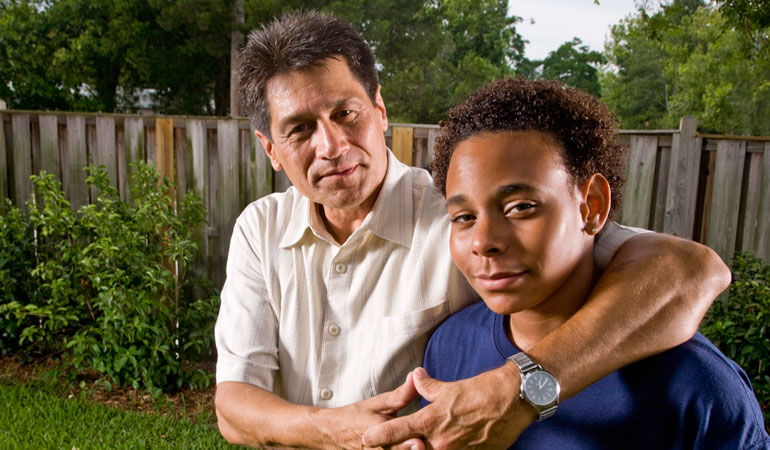As children reach middle childhood, they become increasingly conscious of the wider world and of a society that may reject those who are “different” or “foreign.”
They begin to understand where the power and influence in our predominantly white society lies. Therefore, they may turn their back on their culture of origin. They don’t want to be seen as “different” from the “real” Americans they believe they are.
Most outliers will try to blend in and assimilate. This is true for children of color living with their biological families, and it’s especially true for adopted youngsters of a different race or ethnicity from their adoptive parents. They believe that if they can only act white, their differences may be overlooked.
This is also an age when children think more about why their birth parents did not raise them. They may feel rejected, angry at a birth culture that didn’t keep them, and reject their cultural or ethnic heritage as a result.
Wise parents understand how important a cultural connection will be to their children once grown, and they work diligently at the following:
- Have matter-of-fact, non-optional conversations about race, racism, and stereotyping. Teach children to recognize racism and stand up to it when they encounter it.
- Participate in your child’s ethnic community of origin. Seek out adults who can be meaningful role models. Often, parents find that their children learn more from an individual mentor or tutor than they do in a language class.
- Make cultural competency-building at least as high a priority as piano lessons, attending birthday parties, or going to soccer practice. Make the effort to drive to a special cultural event or pay for that special weekend heritage camp.
Older Adoptees Can Help
Discussions with parents — no matter how terrific — are not enough. Adopted children need to talk to one another about growing up adopted in a race-conscious world, and they won’t always feel comfortable doing this at family gatherings. They need to talk, out of earshot of their parents, to others whose feelings, fantasies, and questions validate their own.
Adults who were transracially/transnationally adopted often say that they now wish they knew more about the language and customs of their homeland or culture of origin. These older adoptees can inspire younger adoptees to continue learning about their cultural and ethnic heritage.
Many of us didn’t develop an interest in our family heritage until we were considerably older; elementary school adoptees may not grasp what they stand to lose as adults if they opt out of their cultural connection now. It’s our job, as parents, to help keep the connection strong.



